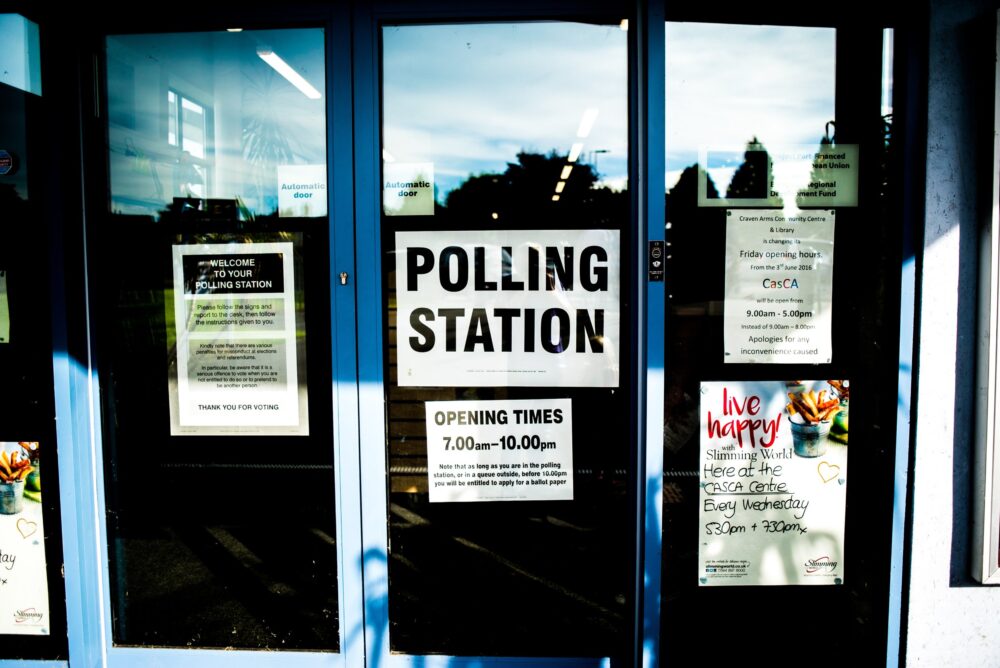WHY IT SHOULD BE A CENTRAL AGENDA ITEM IN EVERY LOCAL AND STATE ELECTIONS
CIC as an organization is deeply committed to the economic development of the cities where we are based. The expressed opinions below are written by Natalia Martinez-Kalinina, General Manager for CIC Miami.
In 2020, six of the county commissioners will term out and their seats will be open for election. For those unfamiliar, the role of the county commission is to make laws for Miami-Dade County, create policy solutions to our most challenging problems, and allocate resources in our $7B budget. At its most effective, this board should be able to work together to bring us much closer to solving transit, affordable housing, economic development, and climate change preparedness.
We had a special election for county commission in June. We go back to the polls in late August with county commission races (Districts 2, 6, 8, 10, and 12), a school board race, circuit and county judge races, primaries – for both parties – for state House and Senate, governor, and U.S. Congress.
Having watched the short-lived and intense campaign back in June and currently observing the ramp up building for the countdown to August 28th, several of us couldn’t help but notice that little has been asked about the economic development portion of their agendas. In town halls and in interviews, in canvasing and in conversations, this topic seemed to come up infrequently, and when it does, is rarely bolstered with specific demands and ideas. This is puzzling, since small business and entrepreneurial growth – including but extending beyond technology-enabled companies – is at the heart of how a county like Miami-Dade should be thinking about economic development and it is up to us to place it squarely on the agenda.
Those of us deep in the weeds of our entrepreneurial ecosystem often hear the same string of statistics cited. The Kauffman Index of Startup Activity tells us that Miami leads the country in business creation, but we also know that these numbers are inflated by the registering of LLCs/shell corporations by foreign buyers, which, although a legal transaction, does not adequately reflect true business creation. A different Kauffman Index measure also tells us that we start to fall off when it comes to our businesses scaling and growing; we rank near the bottom. The reasons for this are complex and range from the cultural and anthropological to the sociopolitical, economic, and structural.
Statistically, one must note that it is normal for the curve of scaling in a business community to slow as the size increases – not every small business or startup can become a behemoth, nor should they. But, when we nuance further, we do start to see other gaps in our local entrepreneurial fabric:
-
The rate of venture capital investment in South Florida has declined for several years (if you remove the massive infusion of funding received by Magic Leap).
-
Women continue to get less than a dismal percentage of government contracts, per the report of the Status of Women in Miami-Dade County.
-
A new report from the Miami Urban Future Initiative ranks Miami second to last among larger U.S. cities when it comes to average employees per high-tech company.
-
Disenfranchised and minority groups continue to have a harder path to accessing funding, resources, and other opportunities to thrive.
In short, the more data we collect, the more we find areas where the intersection of our public and private sectors is underperforming to our joint detriment.
When it comes to entrepreneurship as economic development, Miami presents a unique microcosm to tackle, experiment, and foresee the impact of national trends. For instance, a recent Stanford study documented that Latinos are starting companies 50 times faster than any other demographic segment in the country, but their businesses are growing slower than the national average. If they generated revenue comparable to the others, they could add $1.4 trillion a year to the U.S. economy. In South Florida’s context, this could mean an infusion in employment opportunities and tax revenue, but also in terms of national relevance. How we close this gap should be a primary focus of the economic development agenda of every official running for elected office in our county, across party affiliation.
This topic is imperative, and yet it appears to receive very little attention in local campaign discussions. At the risk of observing the obvious, the state of our small businesses and entrepreneurs impacts all of us, not just business owners. Large companies are certainly key drivers of our overall landscape, but experience shows that small and growing enterprises disproportionately contribute to cities the world over in metrics such as job creation, quality of life, personal income, wealth creation, and equity. In addition, we know – from myriad research and global examples – that entrepreneurs are not just the lifeblood of a city’s economic fabric and its integration into international networks. They are also consistently part of the equation for solving systemic issues through social innovations and research. Done right, they could find solutions for holistic resiliency, transit woes, financial insecurity, gaps in societal indicators of health and wellbeing – all of which are critical for South Florida’s development.
As such, this question should be central in almost every electoral platform: how can local and state government help turn our status as case study into an opportunity to leapfrog and lead by leveraging entrepreneurship and innovation?
Miami’s entrepreneurial community is primed for growth, but only if conclusive, focused policies emerge from our local governance. The right public leadership can create the environment – through governing, regulation, policy, agenda setting, coalition building, thought leadership – that encourages progress that is equal parts dynamic and inclusive. This should be a key agenda item. In light of our imminent elections, our community should ask for and focus on candidates’ positions around:
-
How to foment access to research and development funding. The Florida Institute for the Commercialization of Public Research was recently defunded, with little outcry from our citizenry.
-
How to augment the role and collaboration of our anchor institutions and large local players, including but not limited to universities, corporates, and research organizations. At CIC, we have seen universities collaborate and collocate in cities like St. Louis and Providence. We know it is complicated, but it’s possible.
-
How to leverage our unique regional demographic patterns to derive benefit, investment, experience, and participation from the many who make South Florida their home for portions of the year. The Venture Mentoring Team, for example, has invited retired and snow-birding professionals to join their ranks as mentors in Broward and Miami.
-
How to support and facilitate the kinds of truly catalytic interventions that bring entrepreneurs together to learn and connect, be they events, competitions, or other opportunities.
-
How to create public venture funds in ways that focus on promoting co-investment with the private sector, distributing multiple small investments instead of just a handful of larger investments.
-
How to build bridges across ecosystem partners, reducing duplication and silos and driving at a collaborative and holistic approach. This kind of systemic thinking is difficult for any one organization to lead, and is often best supported and reorganized from the public sector.
-
How to double down in supporting the creation of resources along the industry verticals that are most relevant for the region, but which are lacking acceleration tools. Primarily, those could include Trade & Logistics, Health & Life Sciences, Financial Tech, Construction & Real Estate technology.
-
How to re-examine and simplify our systems with an eye toward lowering barriers for startups and smaller businesses. This could entail a broad range of items, from professional and occupational licensing to simplifying tax codes to streamlining zoning and approval processes.
-
How to reshape our policies to consciously not just welcome immigrants, but support their integration as business owners and entrepreneurs. Statistically, immigrants are twice as likely as native-born Americans to start businesses; we should augment, not diminish this.
-
How to re-envision the focus on STEM and entrepreneurship within our talent pipeline. Florida lags when it comes to diversity in STEM careers – approximately one third of our technology employees are women, making us the 29th state in the country on this metric. While national high school interest in STEM professions has continued to rise, ours has generally declined.
-
How to track our progress and metrics with more nuance, at the local and state level. For instance, the Miami Urban Future Initiative has published several reports benchmarking and tracking critical aspect for our region, from competitiveness to globalization to talent.
As a growing community of entrepreneurs, ecosystem players, and generally concerned citizens, we must start demanding candidates and elected officials who have put serious thought into this kind of policy narrative. Supporting entrepreneurship and driving innovation does not have a quick fix; leveraging it for inclusive and large scale economic development is not a short-term strategy to adopt, but rather a crucial and nonpartisan part of a longer-term commitment to the structural health of our county. This conversation should be central to the policy outlines of each candidate for County Commission, Mayor, State Congress, and Federal Congress. I, for one, look forward to hearing their thoughts.




